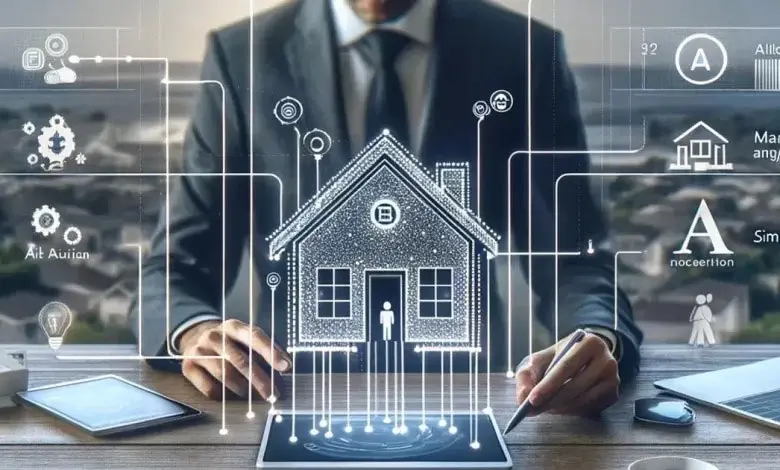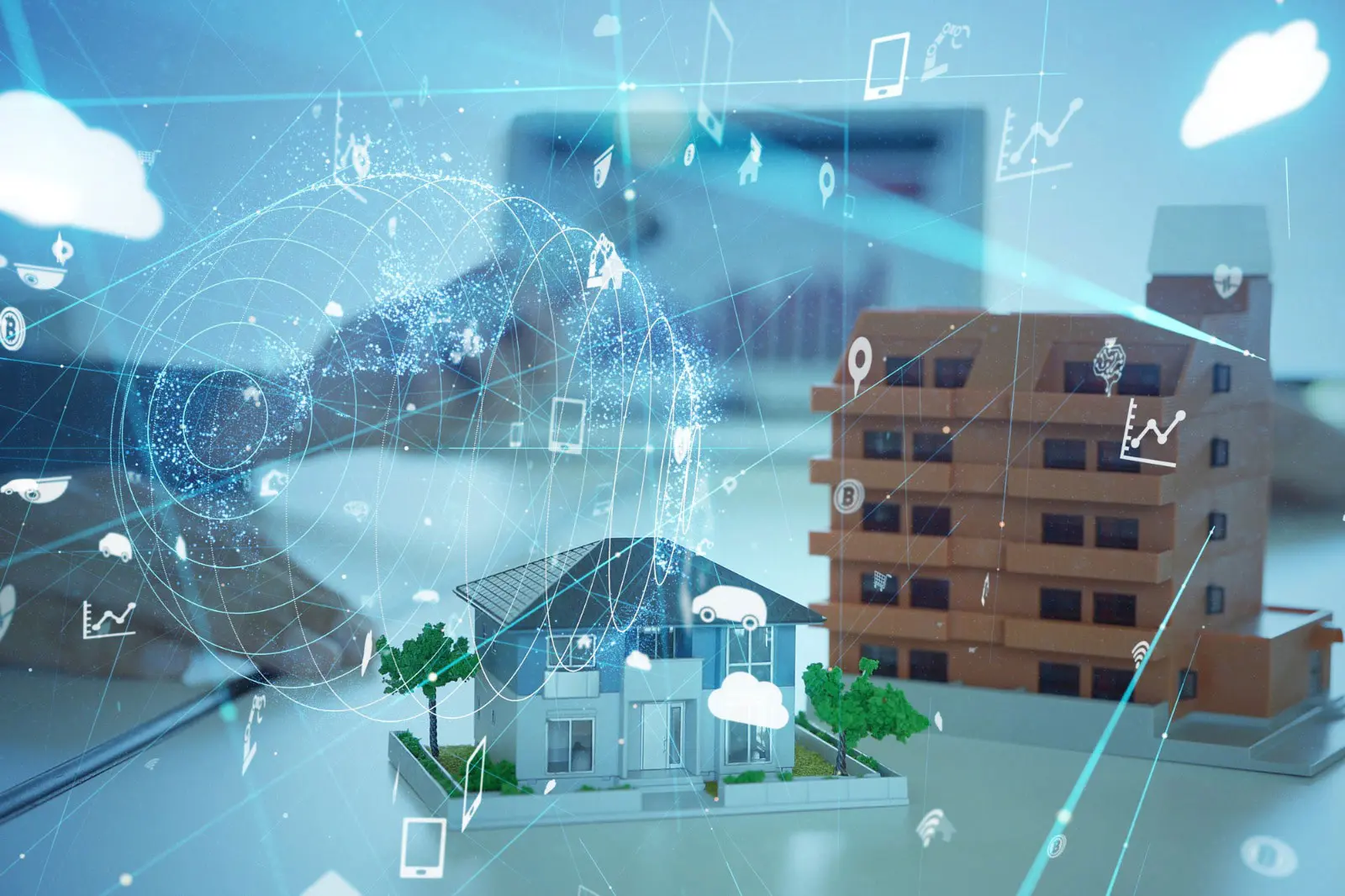How AI and Smart Tech Are Transforming Real Estate Projects
13, June 2025

Introduction
The real estate sector, traditionally known for its brick-and-mortar approach, has undergone a significant transformation. The integration of Artificial Intelligence (AI) and smart technology is redefining how real estate projects are conceptualized, designed, developed, marketed, and managed. This tech-driven evolution is not just a passing trend but a major shift that is streamlining operations, improving user experiences, and enhancing investment decisions.
1. AI in Real Estate Planning and Design
Real estate development begins with planning and design. AI is being used to analyse massive datasets—demographic trends, zoning laws, market demand, and environmental conditions—to identify optimal locations for new developments. This data-driven approach helps developers make more informed decisions and reduce costly mistakes.
Generative design, powered by AI, allows architects and designers to input specific parameters (e.g., budget, space, sunlight) and generate multiple design options. This accelerates the design process and ensures the best use of space and resources.
2. Smart Construction Management
The use of smart technology in construction is reducing delays and cost overruns. AI-powered project management software helps monitor progress, optimize schedules, and allocate resources efficiently. Drones and IoT sensors track on-site activities, ensuring real-time updates on construction status and safety compliance.
Machine learning algorithms can predict equipment failures before they occur, thereby reducing downtime. Robotics and automation are also increasingly used for repetitive tasks like bricklaying or drywall installation, improving productivity and reducing human error.
3. Enhanced Marketing and Sales Strategies
AI is changing how real estate projects are marketed. Predictive analytics helps identify and target potential buyers or tenants based on behavior, preferences, and past interactions. AI-driven CRM systems personalize communication and follow-ups, increasing lead conversion rates.
Virtual tours, augmented reality (AR), and 3D visualization tools provide immersive experiences for prospective clients, enabling them to explore properties remotely. Chatbots handle inquiries 24/7, providing instant responses and freeing up human agents for more complex tasks.
4. Smart Buildings and Infrastructure
The concept of smart buildings is central to modern real estate projects. These buildings are equipped with IoT devices that control lighting, heating, air conditioning, and security systems. Smart infrastructure improves energy efficiency, reduces operational costs, and enhances occupant comfort.
AI-enabled Building Management Systems (BMS) learn and adapt to user behaviors, adjusting utilities accordingly. For example, smart HVAC systems optimize temperatures based on occupancy patterns. Integrated security systems use facial recognition and biometric access for improved safety.
5. Property Management and Maintenance
Once a project is operational, AI continues to add value through intelligent property management. AI tools predict when maintenance is needed, reducing the likelihood of major breakdowns. Chatbots and voice assistants facilitate tenant communications, from logging complaints to managing lease renewals.
Smart meters and utility management platforms give both tenants and property managers real-time insights into usage patterns, helping reduce waste and lower bills. AI also helps with asset lifecycle management by tracking wear-and-tear and planning capital expenditures.
6. Data-Driven Investment Decisions
Investors and developers are leveraging AI for real-time market analysis, risk assessment, and portfolio optimization. Machine learning models process historical data and current market trends to forecast property values, rental yields, and market cycles.
Natural language processing (NLP) tools analyze news, social media, and financial reports to provide sentiment analysis, aiding investors in gauging public perception and market dynamics.

7. Urban Planning and Smart Cities
AI and smart tech are key to the development of smart cities. Real estate developers collaborate with municipal bodies to integrate infrastructure with digital technology, enabling efficient transportation, waste management, and public services.
AI helps in simulating urban growth scenarios, assessing environmental impacts, and designing inclusive urban spaces. This leads to more sustainable and livable communities.
8. Challenges and Ethical Considerations
While the benefits are clear, the integration of AI in real estate also raises concerns. Data privacy, cybersecurity, and algorithmic bias must be addressed to build trust. Moreover, job displacement due to automation is a pressing concern that needs balanced strategies.
Transparency in how AI decisions are made—especially in investment or tenant screening processes—is essential to maintain ethical standards in the industry.
Conclusion
AI and smart technology are no longer futuristic concepts—they are reshaping the real estate landscape today. From smarter design and efficient construction to personalized marketing and intelligent property management, the applications are vast and impactful.
Real estate developers, investors, and property managers who embrace these technologies are better positioned to stay competitive, deliver higher value, and contribute to building smarter, more sustainable cities. As the industry continues to evolve, staying informed and adaptable will be the key to success in the age of AI-driven real estate development.
